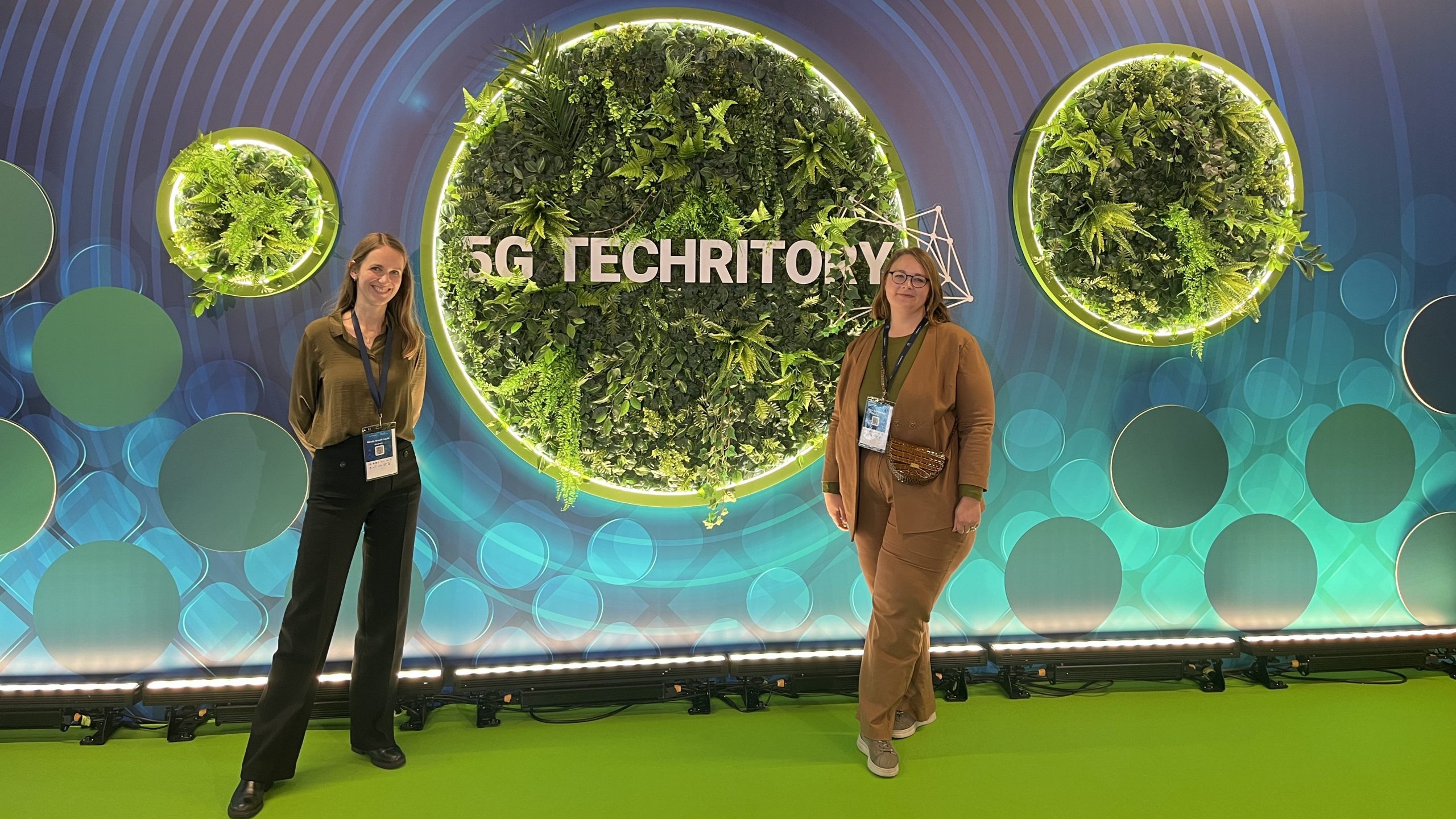Renowned for its digital proficiency, the Nordic-Baltic region faces a critical challenge: a widening digital divide between urban centres and its sparsely populated rural areas. To address this, the new Nordregio research project Nordic-Baltic Connectivity (NB-Connect) was launched at the 5G Techritory, building upon the success of its predecessor.
The Nordic-Baltic region is known for its digitised public sector and pioneering tech industry. It also stands out as one of the least densely populated areas in the world. This has created a concerning contrast between the tech-savvy metropolises and digitally underserved rural regions. Remote communities face rising challenges with the outmigration of people and businesses as well as shortages of skilled workers in sectors like healthcare and education. Digital technology holds great potential to address these challenges, but expanding digital connectivity beyond urban centres remains a significant hurdle due to lacking incentives.
This is where NB-Connect steps in—a new Nordregio research project funded by the Nordic Council of Ministers as part of the new Nordic-Baltic Co-operation Programme for Digitalisation 2025-2030, dedicated to exploring how enhanced connectivity can benefit local businesses and communities.
A holistic approach to 5G and connectivity
NB-Connect kicked off with the first expert group meeting at the 5G Techritory where the group members met and discussed the project’s goals and upcoming activities.
Nicola Wendt-Lucas, project manager and senior researcher at Nordregio explains that this research feeds into broader discussions on designing and using technology in ways that are resilient, inclusive, and ethical. She says it is particularly timely, given the increasing focus on critical infrastructures and their role in crisis preparedness.
The project also builds upon the success of a previous project that focused primarily on monitoring the 5G rollout. The now finalised project concluded with a report emphasising the need to foster collaboration ecosystems and ensure that policy and regulatory frameworks support the innovative, equitable deployment of 5G technology.
NB-Connect, however, takes a more holistic approach as stated by Nicola Wendt-Lucas:
“We aim to understand the broader socio-economic implications of digital connectivity in rural areas, going beyond merely monitoring 5G coverage.”

Developing the 5G Data Hub
One of the main objectives of the new project is developing Nordregio’s 5G Data Hub to offer a unique platform for regional knowledge exchange and partnerships. This means introducing a streamlined data update process and a more intuitive, relevant and user-friendly interface. By adding data layers and socio-economic indicators that highlight the implications of improved connectivity, the idea is to equip policymakers with the tools they need to develop evidence-based policies.
Nicola Wendt-Lucas explains that the hub’s enhanced functionality will allow policymakers to explore the interplay between digital infrastructure and regional development, becoming a catalyst for informed decision-making.
“By promoting a holistic view, the 5G Data Hub encourages collaborative efforts to bridge the digital divides and drive inclusive growth.”
Rural smart communities and cross-border collaboration
In addition, the team is planning an engaging workshop series that will bring together government representatives, industry leaders, and researchers who are advancing 5G applications in the region. These workshops will cover topics like technical monitoring challenges and societal implications, to create a platform for sharing best practices and lessons learned. This will help build new networks and strengthen existing ones.
NB-Connect will also delve into Nordic-Baltic cases to understand how improved digital connectivity impacts the daily lives of people in the region. Nicola Wendt-Lucas clarifies that focusing on the benefits, challenges and experiences of local communities can enrich the public debate on 5G and emerging tech beyond a purely technological perspective. The findings will be presented through story maps focusing on smart communities in rural areas, and a comprehensive publication.
“Imagine a remote village where farmers use smart sensors to monitor soil health, leading to more efficient and sustainable agriculture. Or consider a small town where telemedicine services provide residents with access to healthcare specialists without the need for long-distance travel. These examples illustrate how enhanced connectivity can make communities more resilient, inclusive, and economically vibrant.”
However, it’s crucial to study the benefits these solutions can bring rural communities critically, Nicola Wendt-Lucas adds, and to identify the possible disconnects between the needs of these groups and technological possibilities:
“This understanding is essential to inform technology and innovation policy design and better adapt to the specific needs of these communities.”
Next steps and expected impact
The project will work closely with its expert group members from the Nordic and Baltic countries, which is key for developing the 5G Data Hub and providing relevant guidance and insights from their respective countries. It’s currently in the process of selecting three Nordic-Baltic case studies of smart communities in the more rural parts of the region.
“We look forward to an interesting and fruitful collaboration with the three selected communities.”
In the short run, NB-Connect will provide a comprehensive data tool on 5G coverage, use cases and some of the associated societal implications in the Nordic-Baltic region, useful for policymakers, researchers, and industry leaders in search of project partners or new insights. Reports and workshops will contribute to the debate on responsible innovation and digital divides by providing insights into rural smart communities and their experiences using digitally enabled technologies.
In the long run, Nicola Wendt-Lucas says, the aim is to enrich the academic discourse on digital divides and responsible innovation within the Nordic-Baltic region.
“In creating a robust information base, we strive to help bridge these divides and foster a more integrated, digitally inclusive region.”

Check out Nordregio’s Digihub for news, resources and more insight into Nordregio’s research toward a connected and digitally inclusive region.
Related Staff
Related Research Projects
Related Publications
Related external pages
Related News
- Nordregio participates in the 5G Techritory
- 5G applications in public services: What to envision for Nordic-Baltic cross-border collaboration?
- Launch of the Nordic-Baltic DigiHub: For a connected and digitally inclusive region
- Security threats to a digital world – Lessons on securing digital infrastructure in a changing environment


